Schedule your free chat to learn how Nested Mama's virtual doula support can help you find ease in your fertility journey.The first time I dug into reading and learning about signs of fertility, charting, and what that could mean for me, I was in my early twenties. A few years on hormonal birth control - supposedly to "fix" issues with ovarian cysts and eventually for family planning - resulted in a symptom after symptom that required more medications just to keep me functional enough to attend graduate school. While my providers initially dismissed the connections between symptoms and the pill, I now know that my some of my symptoms indicated that I could be at increased risk for stroke when taking hormonal birth control. At that point, I knew there had to be a better way. While jokes about natural family planning abound - I remember a midwife telling me it was "naturally planning to have a family" - there are a wide variety of methods to chart and interpret fertility. These methods can be leveraged for a variety of purposes - to understand your body, to conceive a child, or to prevent pregnancy. So here's a little bit more about fertility charting and why you may love it, too. 1. Understanding your body When I first dove into research concerning various methods of fertility charting at age 23, my initial reaction was one of extreme frustration. Why had no one provided this education to me 10 years ago when I went through puberty? Beyond noting the difference between healthy and problematic discharge, I had NO IDEA that the variations in cervical mucus I observed when going to the bathroom had a rhyme and reason connected to my cycle and fertility. Charting your fertility allows you to connect more deeply with yourself and your understanding of your own biology. Regardless of whether or not you employ this to plan your family, it is a powerful tool simply in that - knowing they whats and whys of your own body. 2. This isn't your grandmother's rhythm method. A lot of the jokes and assumptions you'll hear about any mention of charting your fertility or a variety of approaches to natural family planning assume that you are discussing the rhythm method - an approach to family planning where you time your intercourse around the assumption of a 28 day cycle, where ovulation is predicted at day 14. While these numbers of 28 and 14 are often cited in a discussion of how fertility works, in actuality many women experience a large spectrum of variation in the length of their cycle which in turn means that ovulation does not occur when a simple counting of calendar days would put it. So if counting doesn't work, how do we chart fertility? Much more reliable than simple generalizations is an observation of your OWN particular signs of fertility. Here, several approaches to fertility charting fall under the umbrella of Symptothermal Methods - that is, methods that rely on charting your basal body temperature as well as other signs of fertility such as cervical mucus and the position of your cervix. 3. Timing conception. Charting your fertility can allow you an understanding of your fertility window - the time in which conception is likely to occur - as well as confirming that ovulation occurred. Instead of aiming for day 14, you can tailor your plans directly to the specific indications of fertility given in your own cycle. If you've been trying to conceive for a few months and are starting to feel frustrated, fertility charting can be a noninvasive approach to gaining more information. 4. Trouble Shooting The data gained in fertility charting can also aid you in trouble shooting potential issues. Wondering if you are ovulating after going off hormonal birth control? Your basal body temperature can help you confirm whether or not an ovulatory event occurs. Some data could indicate a variety of natural supplements to explore, while other aspects of charting could indicate if their are concerns with hormone levels. All in all, it provides a host of data points to bring to a knowledgeable medical provider if and when you have questions about your cycle. 5. Family Planning When I discuss the family planning aspect of fertility charting with clients, I'm always reminded that choices around this topic are intensely personal and should always be in tune with a client's values, needs, and preferences. Recently, the CDC changed its view on the efficacy of Fertility Awareness Based Methods for contraception - citing a failure rate of 2%-23%. Why such larger variation? This big span in numbers is due to the wide variety of methods that fall under the umbrella of this category, with some offering more efficacy than others. And, when you consider the failure rates cited for a variety of common birth control methods - condoms (13%), pill/patch (7%), shot (4%) - those looking for an alternate tool for family planning may find a fertility awareness method with a lower failure rate appealing. Regardless of your plans for conception or family planning, fertility charting allows you to connect with your cycle in a new and helpful way. I hope I've piqued your interest to learn more. Do you already chart your fertility? Share about your experiences in the comments! *This post contains an affiliate link. This link gives you a small discount and me a commission that helps keep the Nested Mama blog up and running! A good deal all around! Are you interested in learning more about fertility charting? As a fertility doula, I offer preconception support as well as charting education and support. Read more about these services here. Sign up for a discovery call, and we can have a quick chat to see if Nested Mama services are the right fit for you!
From Memorial Day to Labor Day in the Corridor, it is officially splash pad season! While my kiddos certainly have their favorites, we love to pack a picnic and set off to explore a new-to-us location to get our splash on. Here, I'm highlighting some of our favorite splash pads to frequent, as well as offering an extensive list of places to splash as you make your way around Iowa City, Cedar Rapids, and surrounding communities this summer. Enjoy! And, share your favorite in the comments! Looking for a way to get your splash on without the crowds? Check out this list of awesome creek stomping locations in the Corridor! Enjoying small water features at Hayes Park in Cedar Rapids.
With a fence surrounding it, the Tiffin City Park splash pad makes it easier to keep an eye on little ones as they play. The pad is very sunny, but a nearby picnic shelter can offer some shade.
Do you have a favorite place in the Corridor to cool down in the summer heat? Share with us in the comments below!
And, if you are looking for the scoop on outdoor adventures in the Corridor, check out Nested Mama's options for Local Family Fun! Schedule your free chat to learn about Nested Mama's holistic approach to family sleep.It may surprise you that as a Sleep Educator, I do not suggest “routine” or “bedtime routine” as the be-all-end-all for a peaceful life with littles. And, to be fair, I’m not anti-routine at all. I think we all - babies, kiddos, and grownups, too - benefit from predictability and cuing our bodies that it is sleep time with restful, relaxing steps. But, at the same time, if your routine is so ironclad that it doesn’t make space for adaptability and flexibility when competing needs for various members of the family come up - then does that routine truly serve you? Often on social media, I see responses to posts about infant or toddler sleep struggles that follow along the lines of “we’ve had a routine from day one and bedtime has never been an issue.” While those individuals do have a routine that works for them, more than likely it is a combo of parent and kiddo personality or sleep inclination - not the specifics of the routine - that result in this situation. And, if you have a routine that you love and serves you - that’s awesome. But, comments like these always make bedtime routines take on a vaguely mystical quality - as though with the right recipe for lotion/books/jammies/bath/song/what have you, children no longer wake at night or need parental support to fall asleep. When, as recent research tells us, it is more than likely that your child will need you at night. So, if I don’t advocate for rigid routine, what do I suggest? I’m a big fan of looking at sleep - and life, in general - in terms of a family rhythm. That means taking into account the ebb and flow of everyone’s day, everyone’s needs, and the things that bring you joy - together. It may mean little one is napping on the go while you enjoy time with your older children at the park. It may mean after a day of fun outside, you all come home and nap together - and then stay up late enough to see the fireflies. It may mean that even though “they” suggest an early bedtime, a late afternoon catnap such that littlest can see the parent who gets home latest at night works better for your family. And, here’s the thing, it is YOUR family. Therefore, the rhythm has to work for you- to serve your needs, rather than keep you locked into only one possible way of being day and night. Sometimes implementing a rhythm that works for your family is hard to do. I get that, and in my one-on-one consultations I’m thrilled to help you sort out what kind of rhythm can work best - how to balance everyone’s needs and find rest and peace. But, I’m also not going to tell you there is only one way to be - one schedule to have, one rhythm to find. Because then, you’re looking at MY rhythm, not yours. And, in many ways, that’s the best part of this work - helping you follow your intuition and letting it guide you in your choices. Because at the end of the day, that’s the only thing that matters. Looking for sleep support for your infant or toddler? Check out Nested Mama's infant and toddler parent workshops and one-on-one consultations.
Are you considering adding a new little one to your family, but you still have a nursling? Are you wondering about breastfeeding while pregnant, weaning in pregnancy, or tandem nursing? Unless you have a friend or family member who has nursed during and perhaps through a pregnancy, you may not be familiar with options and resources for nursing while pregnant. Here are a collection of FAQs and resources you may find helpful. ***As always, consult your medical provider for any questions about your specific situation. How does nursing impact ability to conceive? The hormones at work in breastfeeding can delay the return of the breastfeeding parent's fertility, so it depends on many individual factors as far as when and if one can conceive while breastfeeding. While some experience the return of fertility with in a few months of giving birth while breastfeeding, others may not until fully weaning. Because ovulation can occur before the onset of the first menses, some breastfeeding parents may conceive without every noting the return of their cycle, while others may experience anovulatory cycles before a full return of fertility. If you wish to understand and chart your cycle, a fertility doula is a great first resource as you navigate this time. If your nights are still interrupted but you want to begin tracking your basal body temperature, check out my favorite piece of fertility tech - Tempdrop! This little wonder makes it possible to chart your temperature amidst night wakings, feedings, or any other reason for interrupted sleep. * Is it safe to nurse during pregnancy? Nursing releases oxytocin, which is the same hormone that causes uterine contractions. However, research suggests that this level of oxytocin, similar to that released during orgasm, does not pose an increased risk for miscarriage or preterm labor. There are certain situations of pregnancy or complications where you may be advised to wean, and these should be discussed with your medical provider. Will I be able to provide for my nursling while pregnant or will my supply be impacted? Whether or not you need to supplement with donor milk or formula will depend on your unique situation as well as little one's age and stage. For babies under a year, breastmilk or formula should still be the primary form of nutrition - and diapers and weight gain are the indicators of sufficient intake. (Always consult your medical provider if you have concerns about baby's intake.) Older babies may gradually transition to more solid food intake, and older nurslings may choose to nurse more or less frequently depending on changes in supply and taste. Kellymom notes that while a decrease in supply by the midpoint of pregnancy is typical, some notice a lessening of supply (and perhaps increased demand from their nursling) as early as the first month of pregnancy. What are the challenges of nursing while pregnant? While the experiences of breastfeeding while pregnant may vary to person to person, some challenges you may note include feeling touched out or aversions to nursing. You may also experience sensitivity and pain with nursing during different points in the pregnancy. If your nursling is a toddler, you may be successful setting loving limits around your nursing times that allow you to sustain this relationship during pregnancy. What about colostrum - will my baby still get enough? While pregnant, your body will switch from mature milk to the production of colostrum. This colostrum production continues until hormonal changes from the delivery of the placenta in the third stage of labor triggers a shift into transitional and then mature milk. After the new baby is born, you may want to make sure to feed the new baby first to insure he or she gets those good antibodies. And, your older nursling may experience some laxative effects from the colostrum, as well. What is tandem nursing and how does that work? If you choose to nurse an older sibling through pregnancy, tandem nursing - nursing two at the same time - is an option. A great resource on this topic - even for those just starting to think about nursing and pregnancy - is La Leche League's Adventures in Tandem Nursing. Full of evidence-based information as well as the personal stories of breastfeeding parents who have nursed through pregnancy and beyond - this book is thorough and truly helpful. As far as what tandem nursing looks like for your little family, know that there is no right or wrong. For some, setting limits with the older sibling as far as when and how long he or she can nurse works to help the breastfeeding parent not become overwhelmed. For others, the opportunity to nurse both at the same time allows for more rest as opposed to nursing the new baby and worrying about what the toddler could be doing. If you do find yourself needing to set limits for your older child, making sure to communicate your wishes, offering other options for comfort (snuggling, reading a book, having a snack or a drink), and being empathetic to any big feels can be so helpful. Here, making sure to have a solid postpartum plan to support you as you navigate these early days with sibling interaction can also be truly important. Feeding a baby. We're mammals after all, right? Despite the fact that our babies and our bodies were biologically made for this, the work of breastfeeding doesn't always feel that natural. And, because the culture that we live in isn't the most breastfeeding informed, feeding your little one whenever and wherever they need to be fed can be a bit stressful at the start. If you are choosing to breastfeed your little one, here are a few tips that may make those initial forays into breastfeeding in public more comfortable. Dress for success. Finding the apparel that makes you feel most comfortable with breastfeeding can be key. While many companies make specific nursing clothing, a lot of nursing parents find that a deep v-neck is sufficient for access to the breast. Others use the "two shirt method," where a top shirt is pulled up and a tank or undershirt is pulled down, keeping all but the breast cozy in clothing. Adding a scarf can be nice if you are feeling like a little more coverage or in chillier weather when an extra layer keeps you and baby more snug. Do it on the move. Sometimes finding a comfy spot to sit down for a feed can feel stressful - or less than ideal when you need to get an errand done now. Learning to nurse in a carrier can be a tool that not only makes breastfeeding in public - but parenting a tiny person in general - more sustainable. Not sure how feed in your specific carrier? Reach out to your postpartum doula or local baby wearing group - the latter being another great resource to find friends and support. Find your community. Nothing boosts your breastfeeding in public confidence like seeing experienced breast feeders wrangle their infants and toddlers and feed in public around you. If you don't have any mom friends to call up for a trip somewhere low-key out and about, reach out to your local breastfeeding group. There are likely a dozen or more breastfeeding parents who would be happy to meet for coffee and be your support squad as you get comfortable nursing in public. And, getting out with other parents in the same stage of life can be so helpful to building your village, too. To cover or not to cover? Many companies sell expensive scarfs or apron-like devices to cover you and baby while nursing. While some breastfeeding parents feel most comfortable nursing under-cover, others prefer to go without. There is no right or wrong, here - only what works to make you and baby feel the best. And, at different stages your little one may heartily protest being covered or do best with more coverage to prevent distraction - only time and experience will let you know. Bottom line: what works for you and baby is what is good and proper. Trust in that - and feed that baby! Advice from breastfeeding parents who have been there and done that: While nursing tops are helpful, I found that layering a tank top under a regular shirt made breastfeeding discreet without a nursing cover. Lifting your shirt up (as opposed to down with a nursing shirt) covers the action and makes for quick access. The tank top underneath covers your tummy and sides while your shirt is lifted up. - Kelly D. I liked having a nursing cover in my backpack.... not necessarily for covering up but for any spit up. - Megan F. Mostly though I just have the attitude that I dare somebody to say something about me feeding my child, but keep a smile on my face so everyone knows I'm confident in my choice. My last piece of advice is to not think everyone is judging you! Most people are in their own worlds out in public and aren't looking or thinking about what you are doing! You can trick yourself into seeing a lot of negativity that might not be there . - Becca D. I went to Plato's closet and bought cute, long tanks in sizes much larger than I usually would so either the arm hole or neck hole is much larger. That way I can just lift up the top shirt, and pull the tank to the side from the armpit. It's easy, discreet, and I feel cute. - Abbi B. I personally feel like if I can catch baby a little early before she’s all out hangry, it’s easier to have a relaxed nursing session in public! When she gets hangry is when it gets a little treacherous for me getting her settled down. So I plan my trips out accordingly - (baby will need to eat around 2, will we be somewhere where I can easily sit down to feed her?) - Carli R. [S]omething that really helped me was always having some enjoyable to drink myself. At the grocery store- I’d always stop by the Starbucks kiosk to get a coffee, or at a restaurant order a favorite cocktail, and always had my water bottle on me. I’d always focus on 1. my baby and 2. just enjoying a drink with my babe. It was almost a mindfulness thing... when I’d start to feel anxious, like people might be staring (they really never were), enjoying a sip of my drink would help me recenter. [. . .]. [I] also just reminded myself that by nursing in public- it’s just paving the way for other moms to feel able to do so as well. I remember seeing moms nursing in public prior to be a mom myself- also remember moms nursing their babies when I was a teacher in an infant classroom and those are the moms who normalized breastfeeding for me and showed me how important it is to be confident and able to do what we need to take best care of our babies and self! So I think that every time I nurse in public, I hope this will help a mama in the future do the same! - Emma B. With my first I was so worried what everyone around me was thinking, and I didn't want to make others uncomfortable. I experienced a number of breastfeeding challenges with my first child and ended up needing to supplement and later wean much earlier than I would have liked. So with my second, I made up my mind that I was going to try not to care what anyone else thought or if I was making anyone uncomfortable. As a woman, we often find ourselves planning for and managing everyone else' s needs, emotions, expectations in our family and societal role. I continue to try to reject that expectation and focus on my ultimate priority, which is feeding and nourishing my baby. - Grace S. Expecting and looking for a breastfeeding class full evidence-based information and nonjudgmental support? Nested Mama offers a convenient webinar Breastfeeding: basics & beyond.
Schedule your free chat to learn how Nested Mama's virtual doula services can support your fertility journey.While the word doula may be most commonly associated with birth support, the word itself actually comes from the Greek word for servant or "one who serves." What, then, is a fertility doula? A fertility doula is a trained professional who provides preconception support to individuals and partners as they follow their path to parenthood. Just as a birth doula brings non-medical, non-judgmental informational, emotional, and physical support to the time around labor and birth, a fertility doula brings that same model to preconception and (in)fertility. Just as birth brings options for choices, so does the path to conception. For clients just beginning their conception journey, a fertility doula provides evidence-based information on tracking and charting fertility as well as holistic resources to support you along the way. Making sure you and your partner are on the same page with understanding how fertility works and maximizing your fertility window can save you stress and guesswork at the start! For those couples who have been trying to conceive for 6 or more months, a fertility doula can be a lifeline as they navigate options for medication and reproductive technology. Your fertility doula is nonjudgmental and always in your corner - meaning you can feel free to express your concerns and wishes without the pressures that can come from others. Navigating options for infertility treatment can be overwhelming, as can finding supportive practitioners you can trust. Your doula is with you every step of the way, helping you evaluate your options and tune into your intuition as you make these choices which are so important to you and your partner. As a trained Fertility Specialist, I bring a host of tools to support my fertility clients in their journey. These tools include a mind/body approach (which research suggests aids in conception). A mind/body approach complements any treatments you may receive and also provides you tools that can help you navigate the experience with less stress. And, as a Pregnancy and Infant Loss Advocate, I understand that your journey to start and grow your family may have included experiences of loss. I understand, too, that pregnancy after loss and/or infertility comes with different emotions and challenges. Because of that understanding, I also extend my doula work to include early pregnancy support - providing the informational and emotional support you need as you move through the early weeks of pregnancy. For many, experiencing pregnancy after loss or infertility comes with a desire to keep this stage of pregnancy more private, but this can also result in feelings of loneliness - with fertility doula support and early pregnancy support, you don't have to go it alone. So, when should you hire a fertility doula? When you first consider trying to conceive or intend to start your journey in the coming months, your fertility doula provides you the insight and the support you need to feel confident planning for this journey. When you feel frustrated after a few months of trying to conceive and want some holistic tools, your fertility doula equips you with an evidence-based understanding of fertility and fertility tracking education to support this stage of your journey. When you begin to investigate infertility options, your fertility doula provides the informational and emotional support you need to fully explore your options with no judgment. When you are navigating fertility treatments, your fertility doula support includes a mind/body approach to complement and support these treatments. When you are experiencing loss or conception after loss, your fertility doula provides wholehearted support and connection to resources - and most importantly, makes sure you don't feel alone in this experience. When you move through early pregnancy after loss or infertility, your fertility doula offers continuity of support, walking with you in these challenging and exciting days and weeks of early pregnancy. No matter where you are on your path to grow your family, your fertility doula will meet you there with empathy and understanding. Want to learn more about fertility doula support? Reach out for a free discovery call today! *When you purchase through this link, you receive a discount and I receive a small commission that helps keep the Nested Mama blog up and running. A win-win! Please know I only share and recommend tools that come highly recommended by myself and/or the wonderful, smart, intelligent clients I support. Looking for mentorship? Schedule your free chat to learn how Nested Mama's one-on-one personalized mentoring can support you!Are you considering make the jump into doula work or a related field? Exploring all your options is sure to be exciting. Exciting and overwhelming, too. As I shared in a previous post on my experience with another doula training and certification organization, I'm frequently contacted by those thinking of making the leap into this amazing work of supporting families in the childbearing year. While sometimes these individuals are interested in my work as a doula, more often they are seeking advice on where to go for training and for certification. As I've written about before, any deep dive into doula training is sure to turn up some polarizing divisions between different organizations, and some doulas can be quite vocal in their preference for one organization over another. That's all well and good - and as I'll share later in this post, I've have my own preferences, as well. But, what those conversations often fail to discuss is that you are an individual investing in this training, and it needs to be the right fit for your values and goals. So, even as I'll share with you my experiences with Bebo Mia *- and why I think they are a phenomenal option for training and certification - know that all that enthusiasm comes with the caveat that you should pick the best program for YOU. Bebo Mia is headquartered in Toronto, Canada, but their programs are fully online, which means you are likely to encounter a diverse group of classmates when you enroll in any of their programs. Each certification can be selected individually or in a bundle for a discount - woohoo for that! One of the aspects that appealed most to me as I explored Bebo Mia's options was their manner of course delivery. Being a busy homeschooling parent, I knew I needed any program to be self-paced and available online for me to make this work with my life. When I jumped into my first Bebo Mia course, I was so pleased to find a smart course design that makes learning truly a pleasure. Each module includes a video of class instruction as well as any supplementary videos, a detailed PDF document covering the class content, and engaging homework and assignments. As an educator myself, I always value sustainable assignment design - that is work that has a purpose and a longevity rather than just a checkbox on your way to the finish line. I consistently found Bebo Mia's course content and individual work to further my understanding of the material and produce homework that actually moved me down the path of my knowledge and business goals. Additionally, with each Bebo Mia course, you will be added to a private Facebook group just for that particular course and session. These groups allow you to engage more deeply in the course content, ask questions, and gain a sense of community with your fellow learners. If you are on the hunt for a doula training program, know that Bebo Mia offers an in-depth MSP (Maternal Services Practicioner) Program that covers fertility, birth, and postpartum. Where other organizations may try to cover any of these topics in a weekend, Bebo Mia takes a seriously deep dive over 16 weeks. (While I haven't completed this particular course, my experience in three other courses leaves me confident that this 16-week program would be a solid choice for doula training. And, as I LOVE taking classes with Bebo Mia, I could see myself circling back in the future to take this training, as well.) Currently, I've completed EcoBaby Certification and Infant Sleep Educator Certification, and I'm finishing the last steps in my Fertility Specialist Certification. I've found Bebo Mia's course design, support, and lived values to be incredibly consistent despite the varied topics and additional instructors. If you are on the hunt for additional training, know that they also offer Diverse Families Certification, Childbirth Education Certification, and Breastfeeding Education Certification - all of which provide excellent opportunities for continuing your education as a birth professional. If you are already a trained doula but looking for more support as you grow your business, I'd highly recommend you check out Bebo Mia's Don't Doula it Yourself program. For a super reasonable monthly fee, you get access to their library of business videos - covering everything from getting started, branding, social media, and more - as well as their private Facebook group moderated by a business mentor. Additionally, that library of content is always growing with more masterclasses as well as live Q&A sessions where you can get answers to your most pressing business questions. Starting a doula business can leave you feeling overwhelmed and lonely, but with the encouragement of this generous DDIY community, you can get the support and community you need to grow your business. If you haven't already, I'd encourage you to spend some time exploring the Bebo Mia website. Each program has a course outline, certification requirements, and ethics statement all right there, so you can get a good sense of what they offer and their values as an organization. *This post contains affiliate links. Schedule your free chat to learn how Nested Mama's private childbirth classes can prepare you for the journey ahead!Pregnancy can be such a busy time - appointments with your provider, researching baby gear, baby showers, planning your leave from work, finding a daycare provider, reading ALL the pregnancy books, turning your house into a home for baby, and so on. The thought of adding one. more. thing. can be overwhelming - I know I've been there. There are also financial concerns to balance - anticipating the bill from the hospital, making adjustments for maternity or paternity leave, buying ALL the baby things, and so on. Given the time and financial pressures of this moment, perhaps it seems like investing in childbirth education - especially outside the hospital classes - is something that can't quite fit. I hear you. I do. But, birth matters. Not just birth in general, but YOUR birth matters. You matter. We often emphasize the importance of a healthy baby, but I maintain there is room for valuing a healthy and happy birthing parent in that equation, too. As a childbirth educator who offers classes outside the hospital environment, I can share with you all the options and choices - the full birth buffet - rather than a menu limited by policy or staff preference. As a childbirth educator who is also a doula, I believe in the importance of nonjudgmental support, and I carry this with me into the space and community of my classroom. There is room for your hopes and your fears in my classroom as well as your birth choices, whatever those may be. Childbirth education shouldn't just tell you about birth, it should prepare you with a confident knowledge of labor and birth. It should support you as you craft a full toolbox particular to your desires to meet birth's challenging moments. And, it should inspire you with a fire to advocate for what is right for you. And, birth is just the beginning. As a breastfeeding educator and sleep educator, I offer a series of classes to prepare you for life after baby and strengthen your partnership ahead of time to meet the ebb and flow of life with your new little one. If you're feeling ready to invest in your birth with more classes, I give you a big high five. Come check out the full range of classes offered by Nested Mama, including group classes, webinars, and private classes to meet your busy schedule needs. Looking for mentorship as you embark on your path as a doula? Check out Nested Mama's one-on-one mentorship support!***update *** In the years since I completed my certification, Madriella has had some changes, including folks who were instrumental in shaping my experience leaving to pursue other opportunities. Madriella also closed the Facebook group, which created the rich sense of community support when I went through the program. If you are considering their program, I encourage you to make sure it is the right fit for you by asking any questions you need directly to the organization as this review may no longer speak to the current experience of students in the program. Are you considering becoming a doula and completely overwhelmed by the options for training and certification? I know I was when I started looking into the education I wanted to build my skill set as a doula. Because I field this question so frequently from prospective doulas, I'm sharing a bit about my experience with training and certification with Madriella Doula Network. (And if my review makes you jazzed to get started, you can use my affiliate code* TOMLINSON154 to save $50 on the Professional Membership - woohoo!!) If you've already made a foray into the many large doula groups on social media, you'll know that people often feel VERY strongly about their choice of training and/or certification program. While I am pleased with my training and experience, I tend to be a little more tempered in my recommendations because I think that your individual fit with a program is more important than my personal experience. You want a program that is the right fit for YOU. So when asked about my recommendations the first thing I point out is that in my community, doulas have trained and certified with a variety of different certifying bodies. Because the doula industry isn’t regulated, my general recommendation is to look closely at the philosophies and method of training offered by those that interest you and find one that aligns with your values as well as learning style. As I searched various doula programs, Madriella's philosophy resonated with me. (You can read about their philosophy, code of ethics, and history here.) Specifically, I like that the organization didn't seem invested in the divisive language that I found in some other programs. I also appreciated the efforts made to keep their training affordable. When I dug into the program, I was thrilled to learn that the Professional Membership included not one but TEN courses including birth doula, postpartum doula, professional development, massage for labor, breastfeeding education, childbirth education, loss and bereavement, and placenta specialist (note: this course does not teach encapsulation). More recently, Madriella added two more courses to help better prepare doulas to meet the diverse needs of their clients: Understanding Developmental Disabilities and Young Parent Support Specialist. If you know me, you know I am a serious serial learner, so the opportunity to have all of that knowledge accessible to me was a huge draw. A little over a year into my professional membership, I've completed five of those courses, and I'm currently in the midst of my sixth. I also wanted to know that the courses were rigorous, and I would emerge from my training with the knowledge and skill I needed to feel confident in this work. Madriella's curriculum is written by a midwife and the birth course, in particular, is a major deep dive into what you need to know. Because I was an avid reader about birth before my doula training, I wasn't expecting to be challenged as much as I was - but I was certainly pleased that this was the case. Because Madriella requires all members to complete the first three courses in order - birth, postpartum, and professional development - the courses naturally build on each other. Once you complete those three, you can move onto any of the other courses in any order you wish. I found this really helpful, because it naturally developed my knowledge and meant the other courses didn't feel repetitive. When you look at doula training programs, it is important to consider your learning style and what course design can help you succeed. For me, reading and writing is my jam, and Madriella's course design works well for this. If I was a different kind of learner, however, Madriella may have not been the best fit - so here is where I really emphasize knowing yourself and what works best for you. The other thing I needed from any training program was flexibility, and because Madriella is self-paced it fit this need quite well. As the primary homeschooling parent to three little ones, I knew I'd be fitting in this training into the nooks and crannies of life. Because I wrote my dissertation that way after having my eldest, I knew I could make it work if the program was flexible enough. The flip side of that, of course, is that a self-paced program requires motivation on the part of the learner to complete it. Here, Madriella's online community can be a great help in finding accountability partners or engaging in the community as you move through the program. In a nutshell, a rigorous program, a supportive community, and a self-paced course design made Madriella the right fit for me. Is Madriella Doula Network the right fit for you? Jot down my affiliate code* TOMLINSON154 and you can save $50 on the Professional Membership - how awesome! Got more questions about my experience? Feel free to reach out! And, I'll be following this blog detailing my experiences with another doula training organization - Bebo Mia - soon. *One of the ways Madriella succesfully keeps the program so affordable is by utilizing affiliate advertising. Please note that as an affiliate, I receive a small commission when you use my code to save on the membership. If you are anything like me, all thoughts of jewelry beyond stud earrings and the occasional silicone teething necklace went out the window once I had little ones. I didn't like the feeling of a necklace being yanked as I held and wore my kiddos, and the thought of them mouthing most jewelry motivated me to keep it all in a drawer. That's why I'm beyond thrilled to share about a local-to-me, super stylish mama whose "mama metal" creations make beautiful and practical jewelry for parents of little ones a reality. I know you are full-time working mom with two beautiful little ones. How did you come to start designing jewelry in addition to that?
I was looking for some uniquely shaped centerpieces, as well as different options for chains. Fox + Bear offers a variety of options to personalize your chain including adding semiprecious gemstone beads, fine silver charms, and multi-strand chains. I love the addition of a charm because you can adjust the length of the necklace by changing where you clip the clasp.
Anyone interested in purchasing jewelry by Fox + Bear Designs can visit my page on Facebook @FoxPlusBearDesigns and send me a message. I have in-stock and ready to wear pieces listed in albums, and I’m happy to work on custom pieces. With Mother’s Day fast approaching I’ve set aside 10 custom spots for anyone interested in treating the special mother in their life or treating themselves to exactly what they want. |
AuthorJohanna received a Ph.D. in English in 2014. Now a postpartum doula and educator of childbirth, breastfeeding, and infant sleep, she blogs about pregnancy, birth, postpartum, and parenting. Archives
February 2021
Categories
All
|
Serving Iowa City, Cedar Rapids, and surrounding Corridor communities
Copyright © 2018
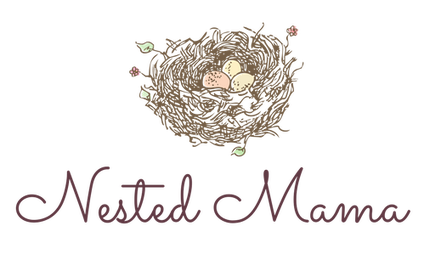


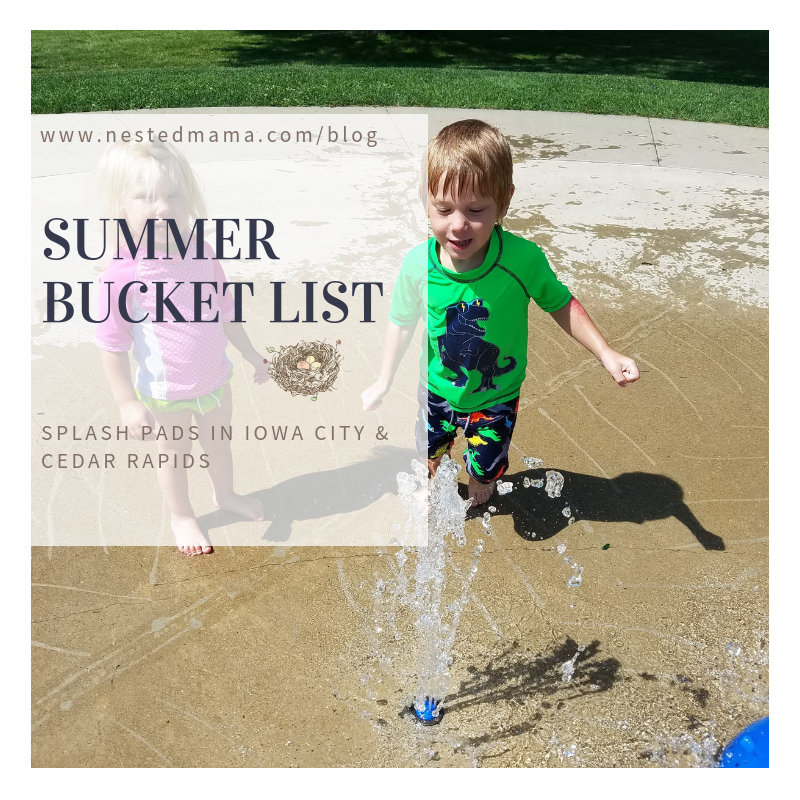
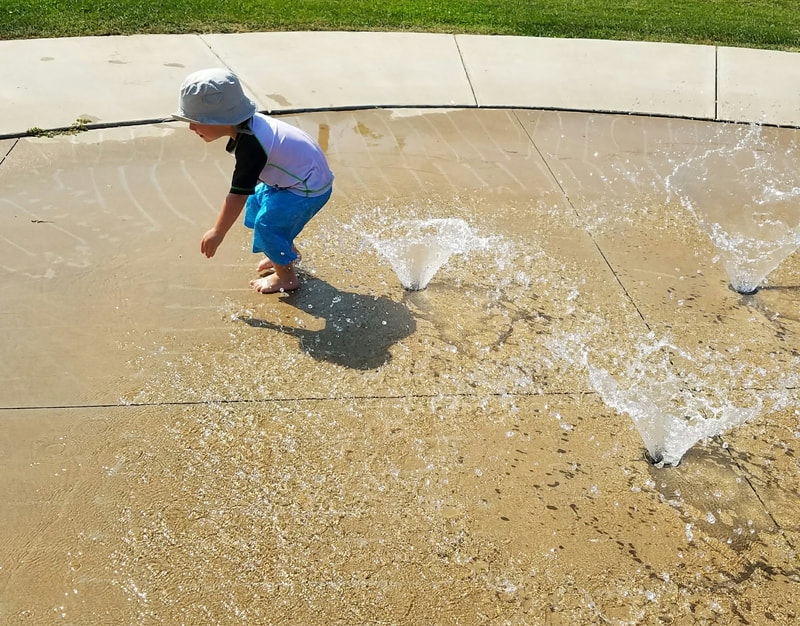

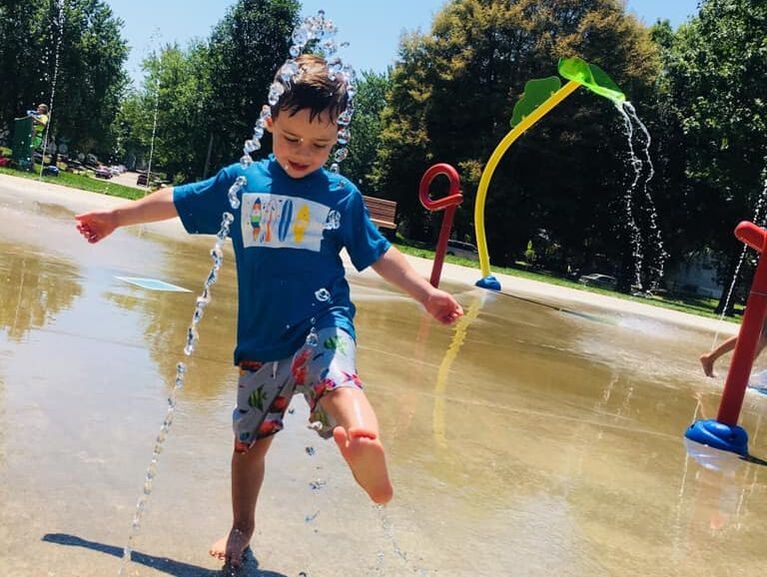
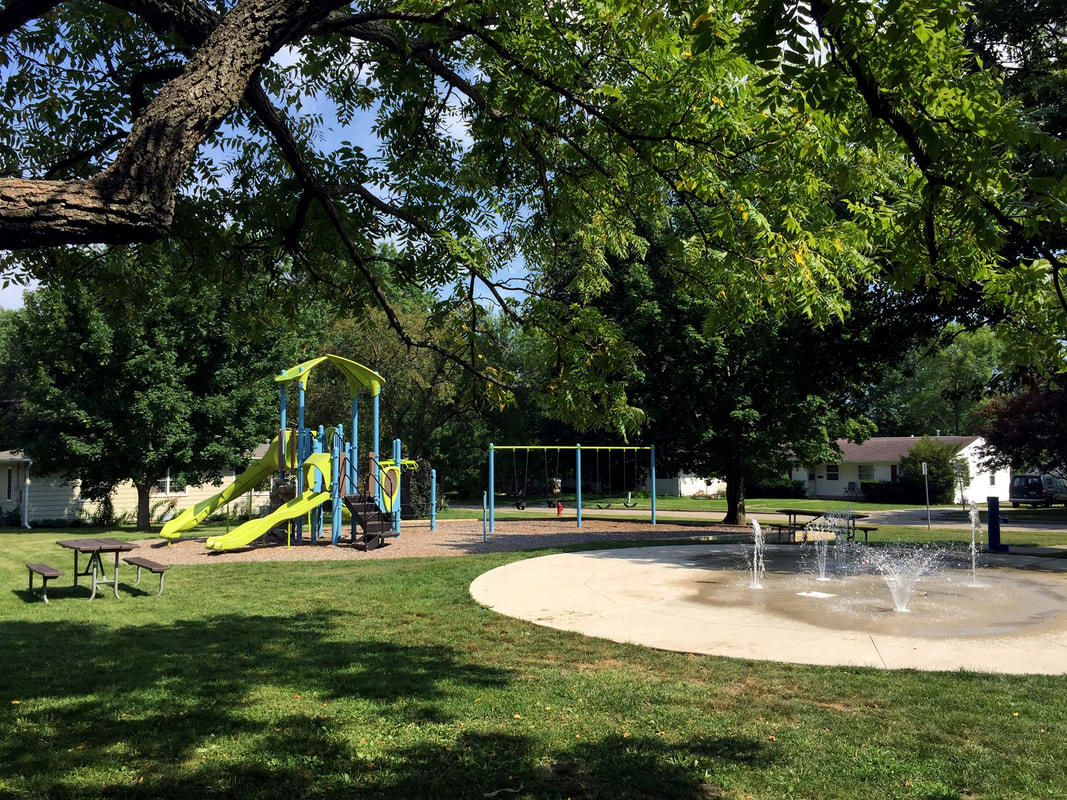

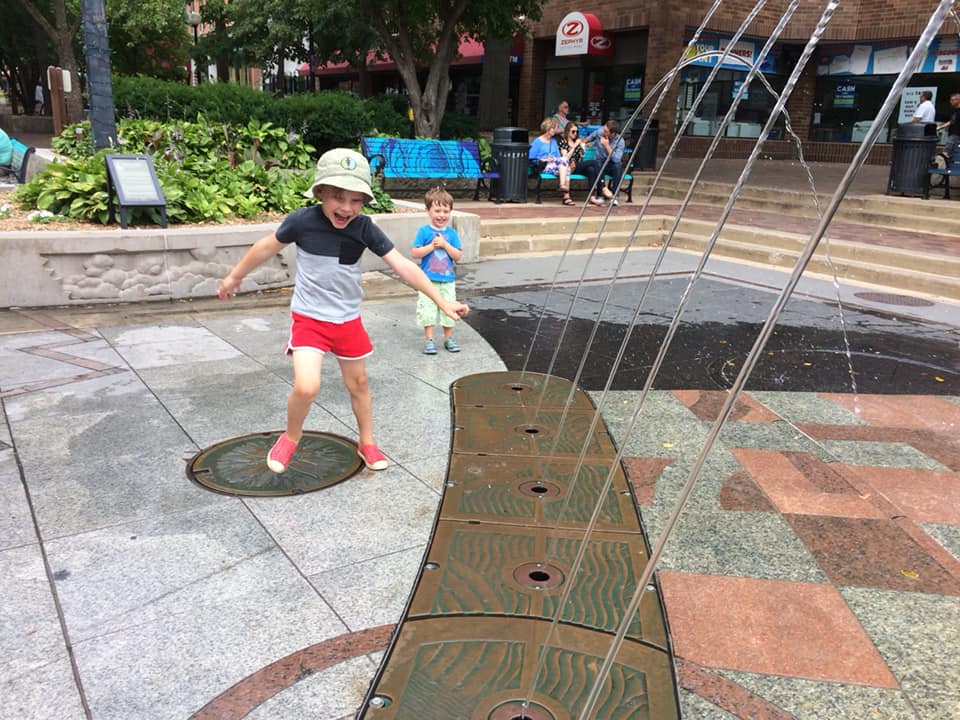
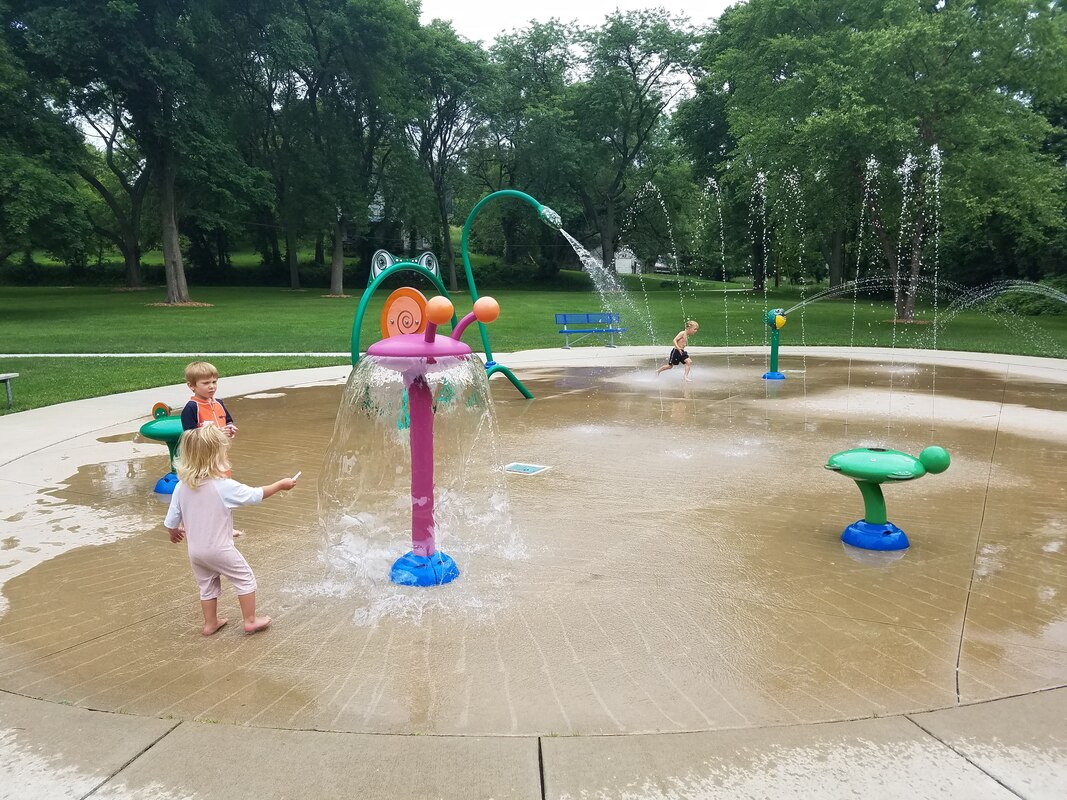

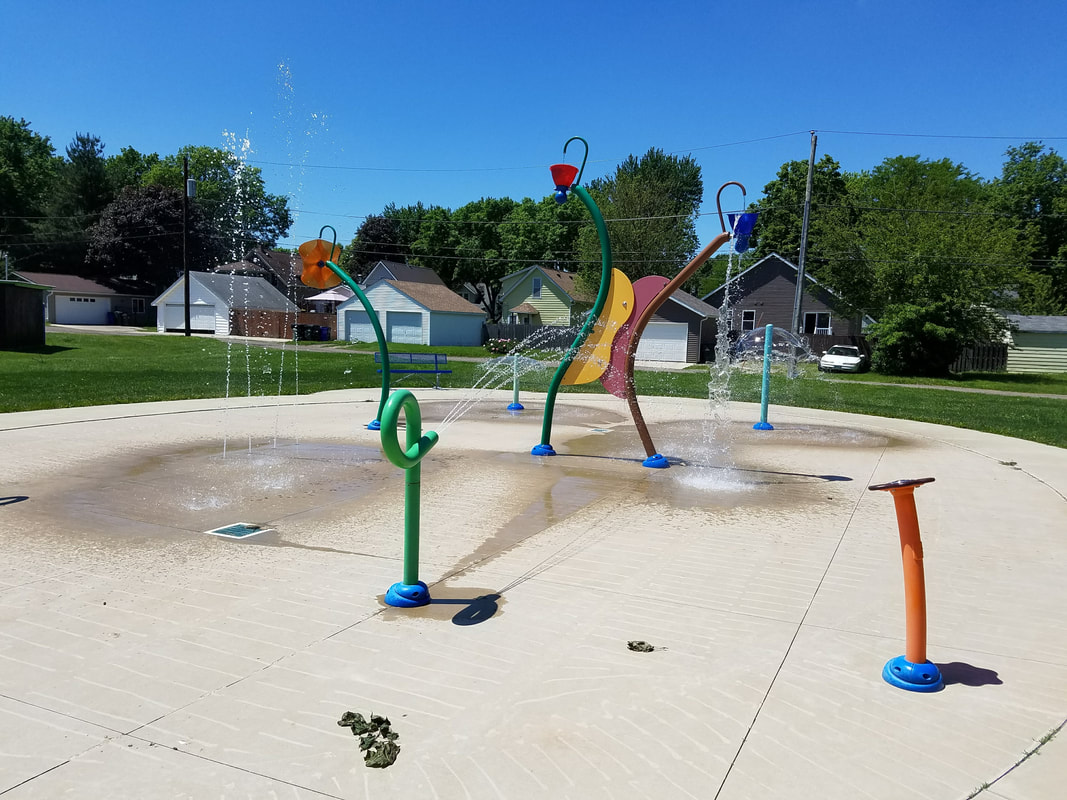
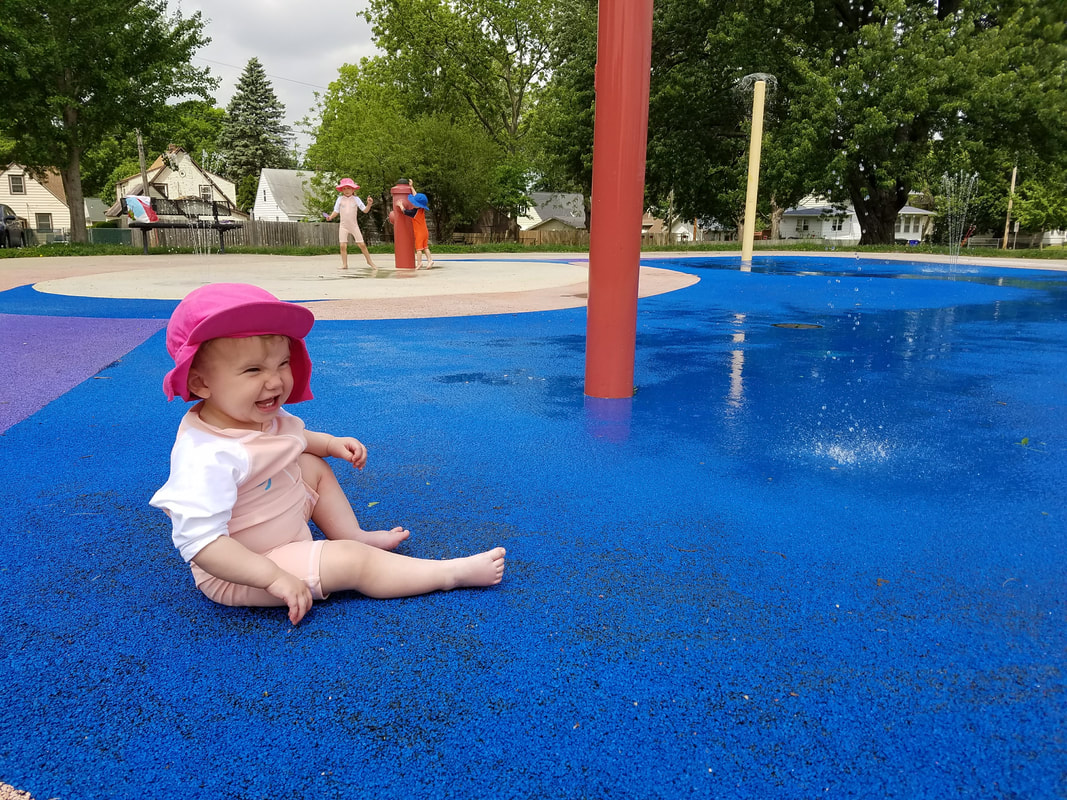
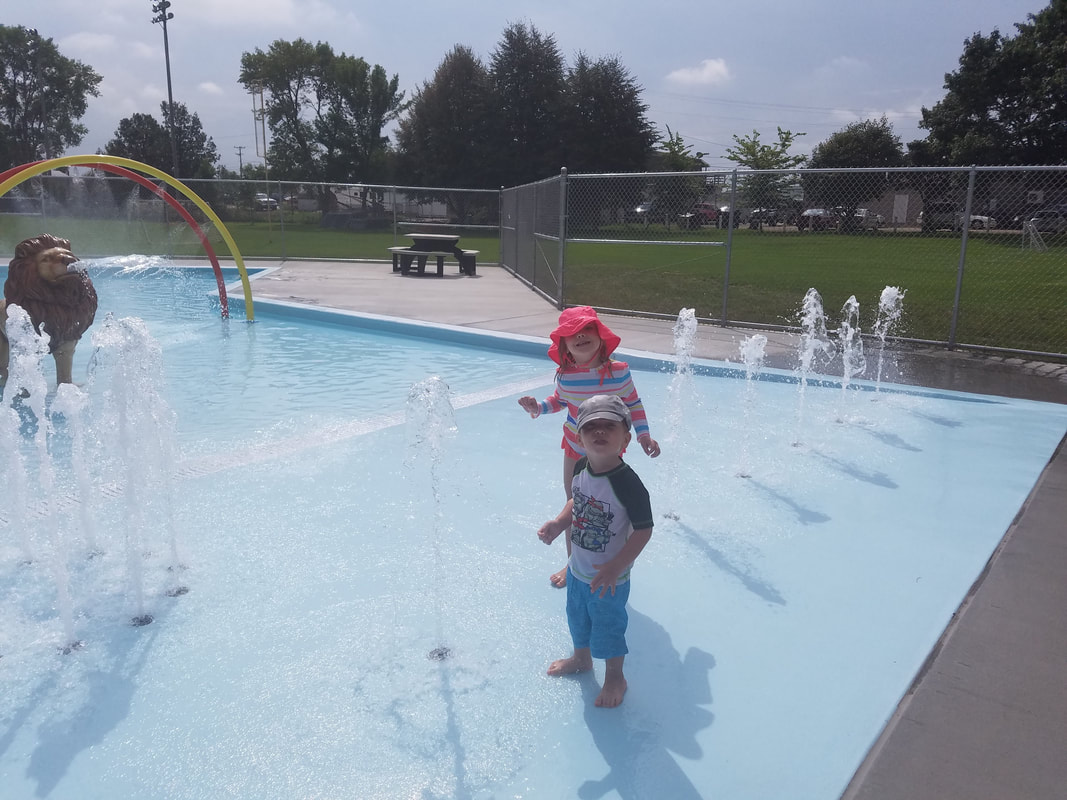
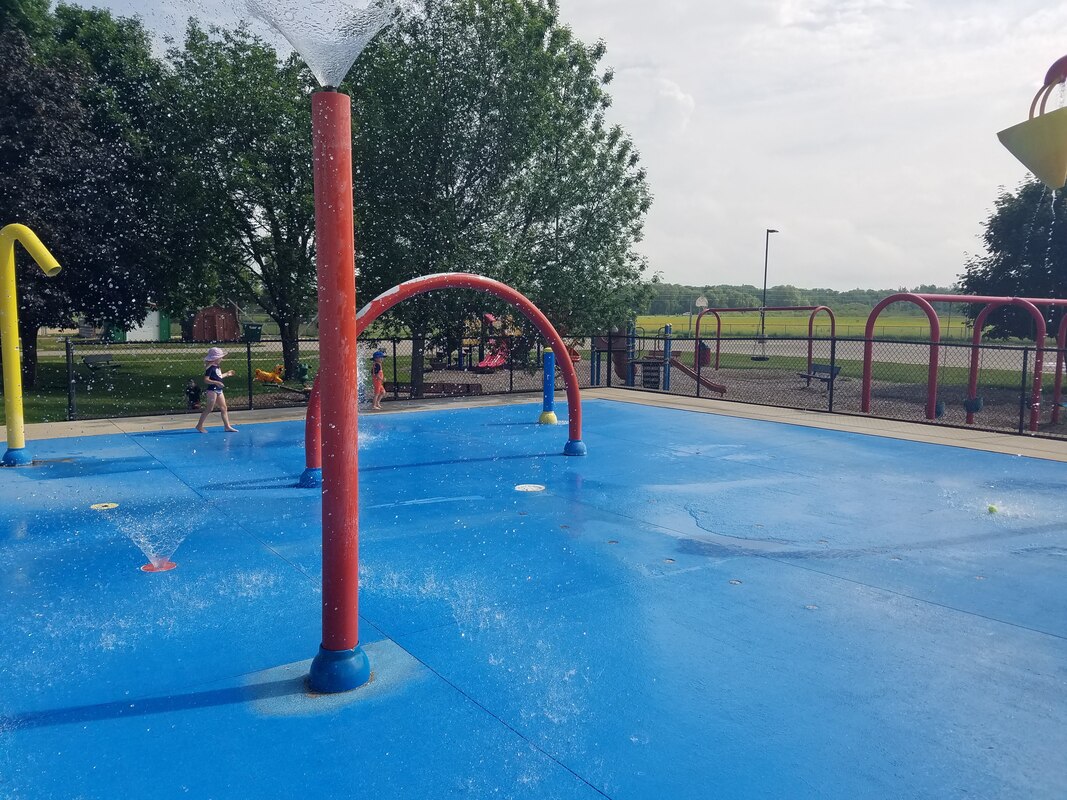
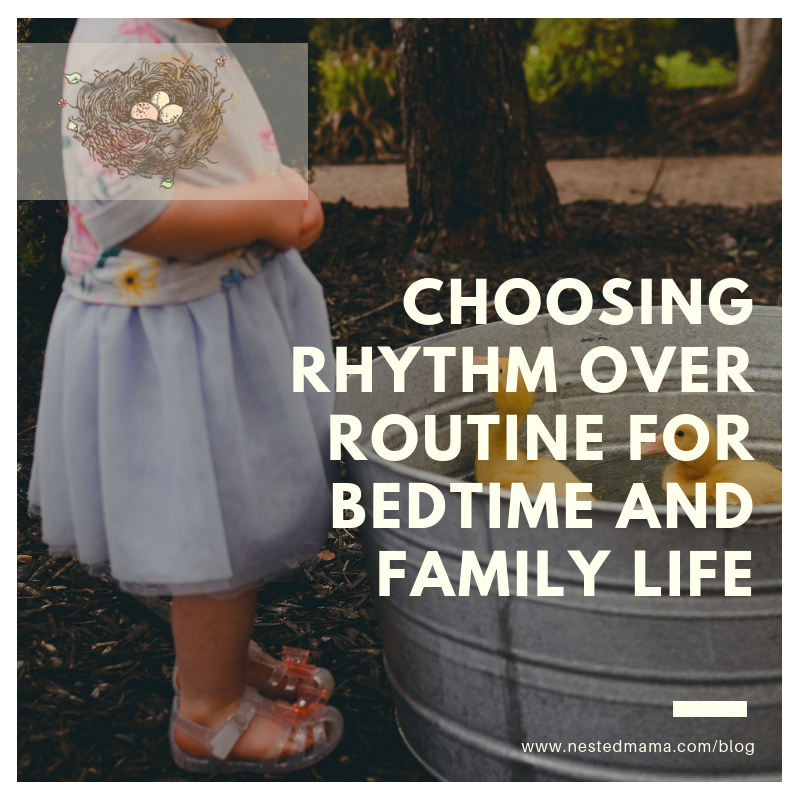
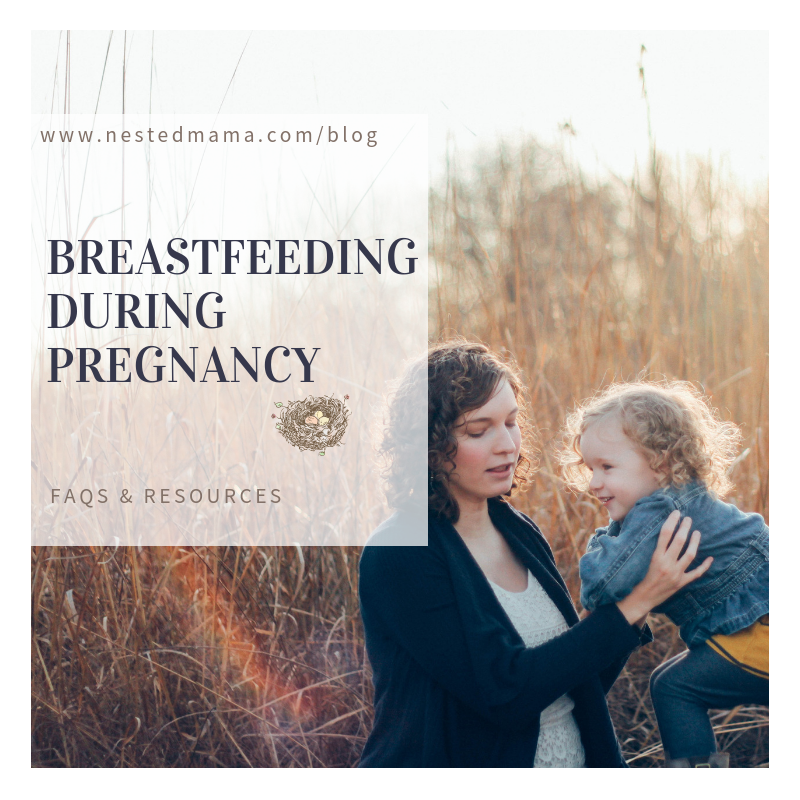
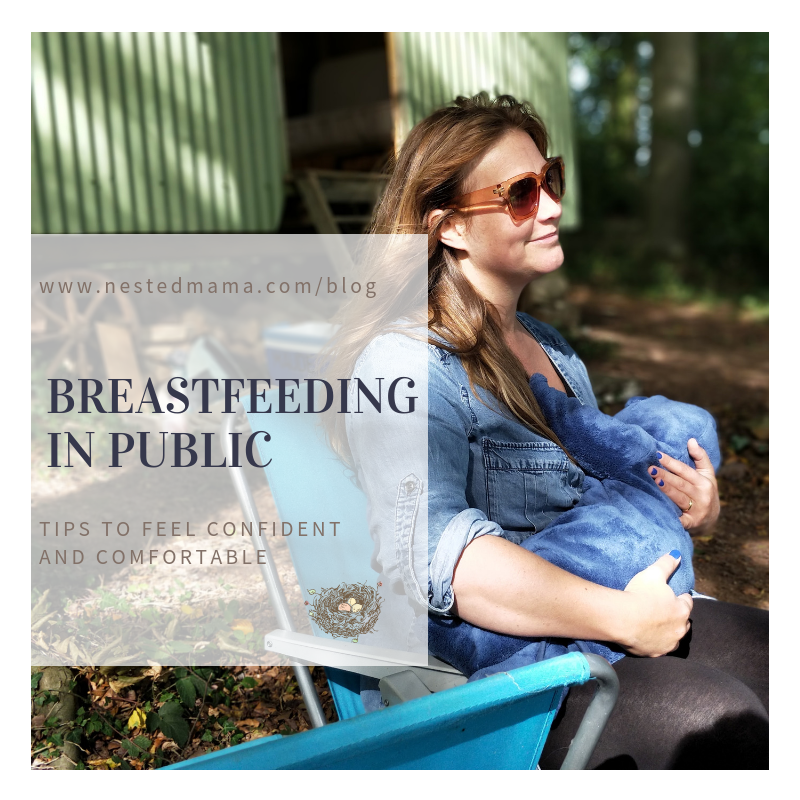

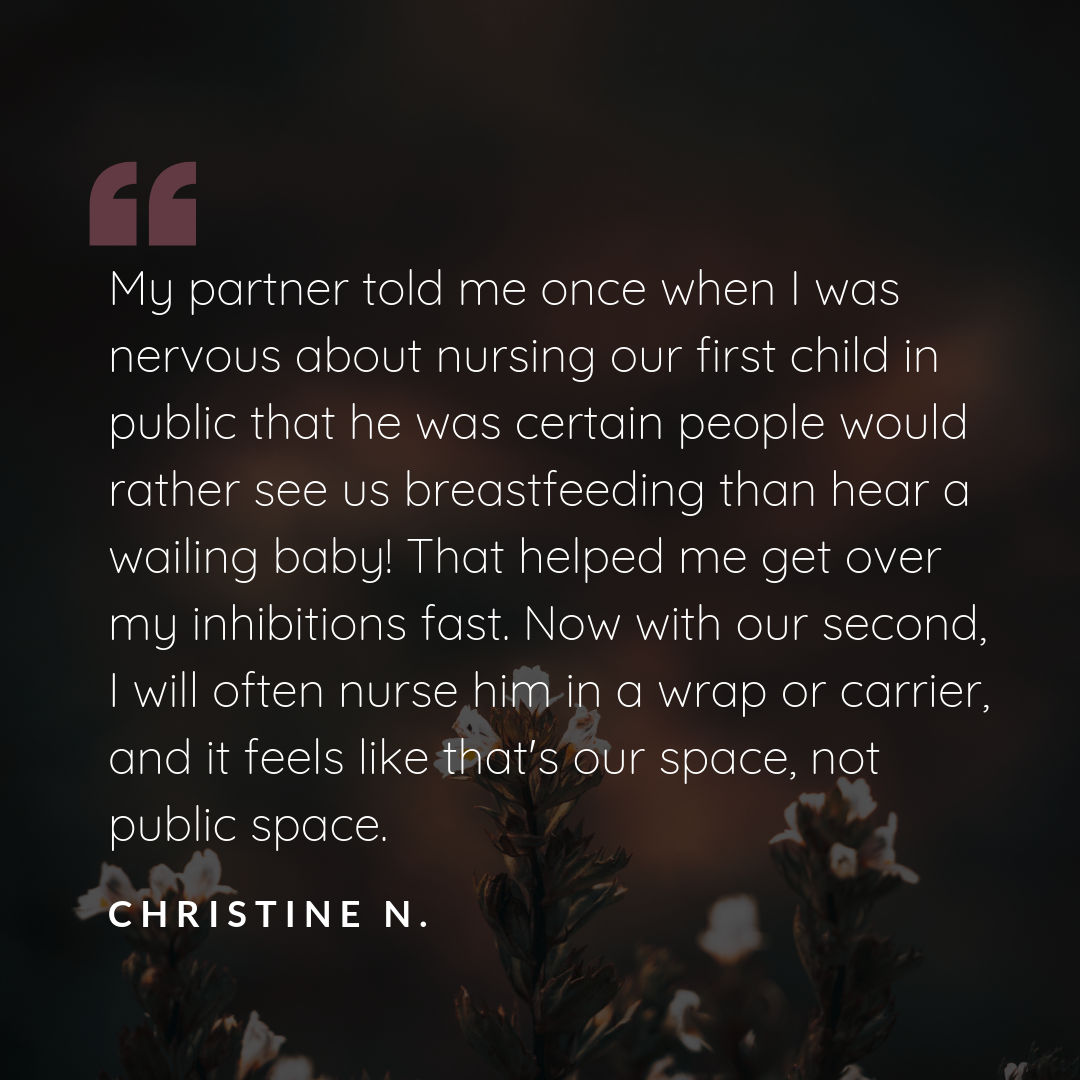



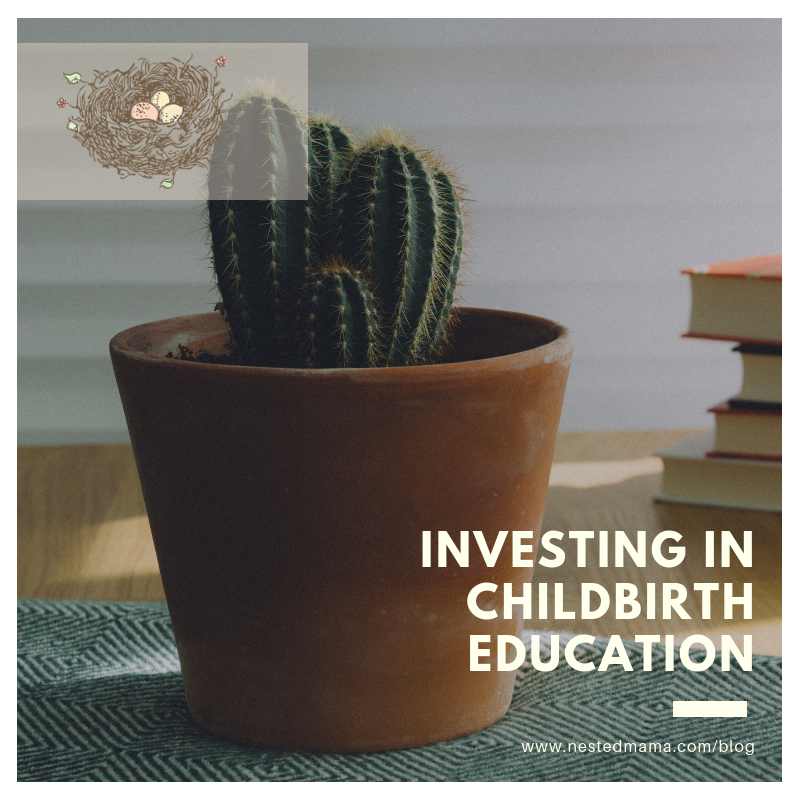
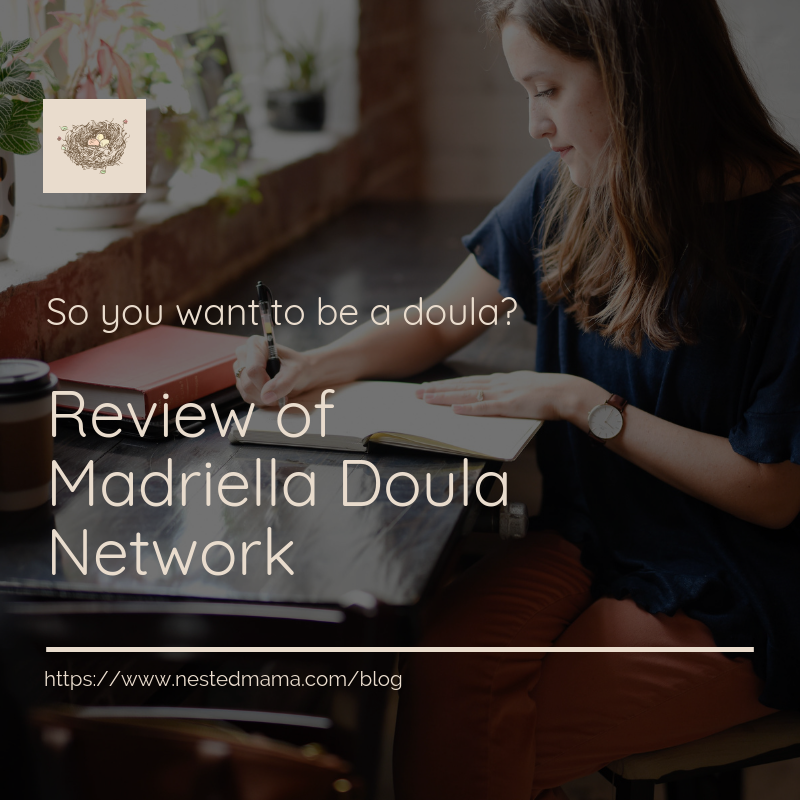

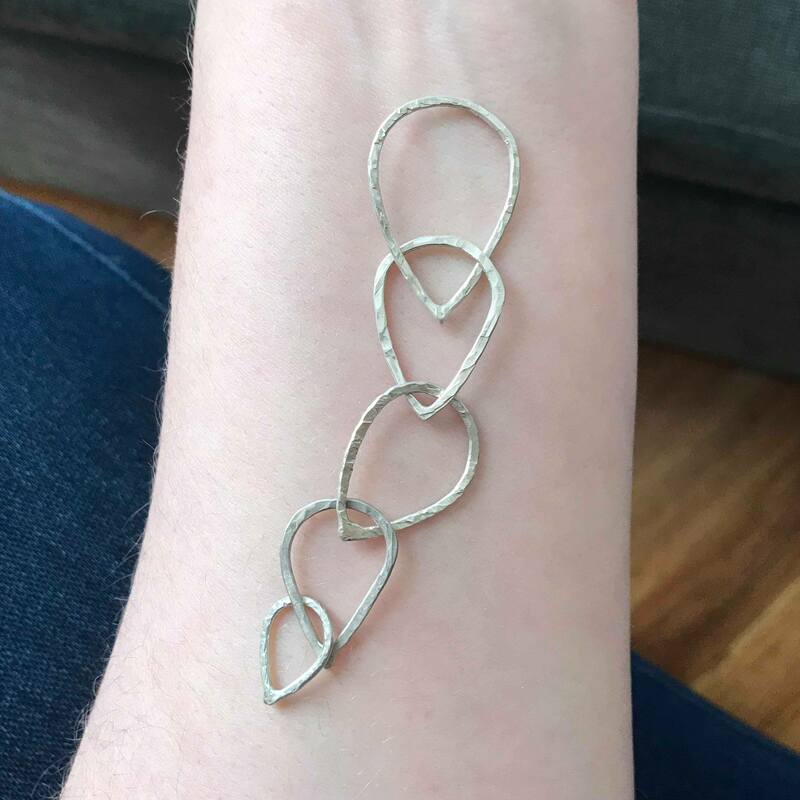
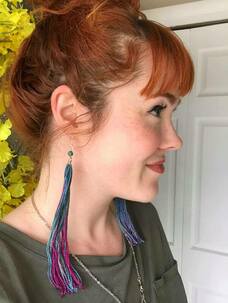
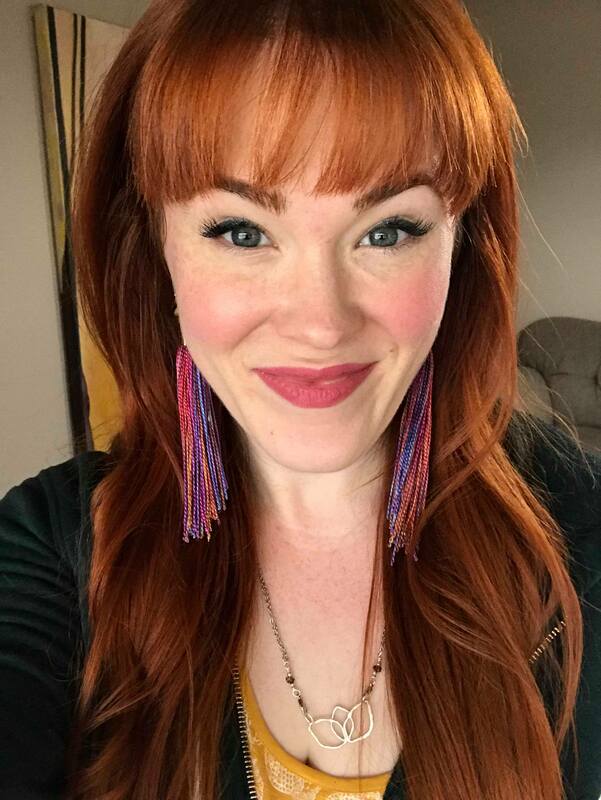
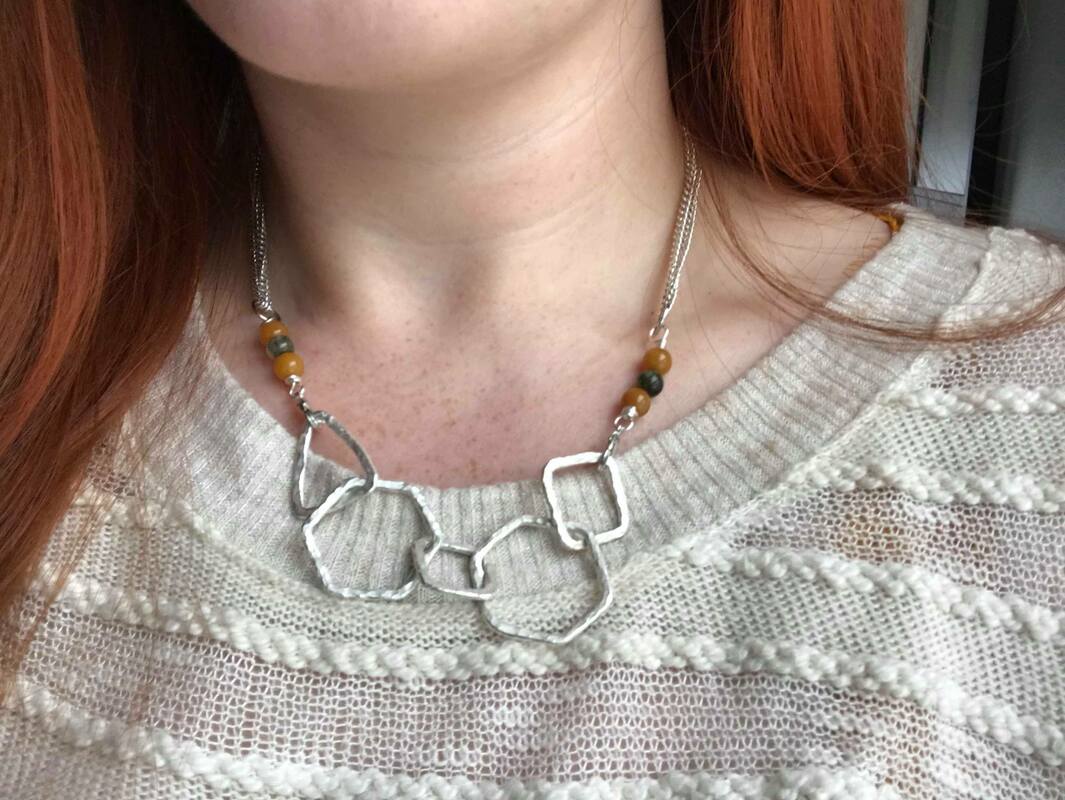
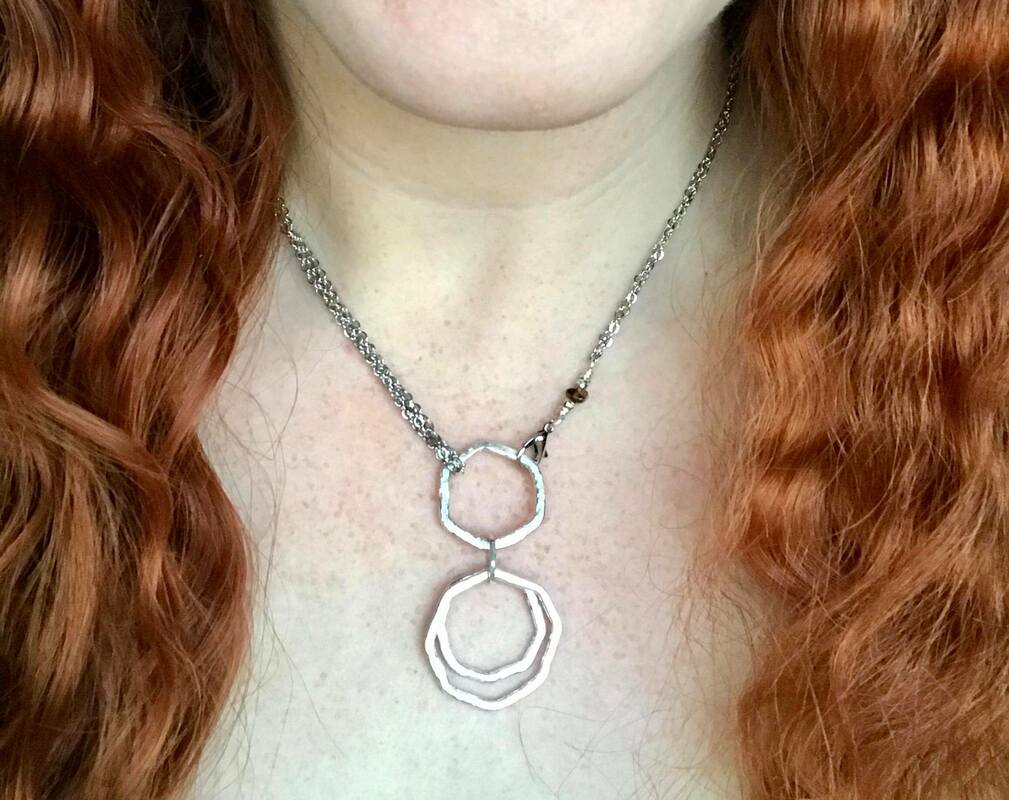
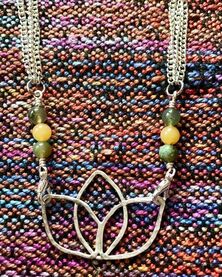

 RSS Feed
RSS Feed